Furniture is not just a mere necessity in our lives; it’s a reflection of culture, innovation, and artistry. When we talk about iconic design furniture pieces, we are looking at creations that have withstood the test of time, not just in durability but in style, influence, and innovation. These pieces are not just functional items for sitting, eating, or sleeping; they are sculptures, conversation starters, and, in many cases, trendsetters that have defined and redefined interior design over the decades.

1. The Eames Lounge Chair: A Synthesis of Comfort and Style
The Eames Lounge Chair*, designed by Charles and Ray Eames, is more than a chair. It’s a symbol of post-war America’s luxury and comfort. Its sleek, modern lines, combined with the soft leather and wood, make it not just a seat but a retreat. The chair’s influence on design and its continuous popularity make it a timeless piece.
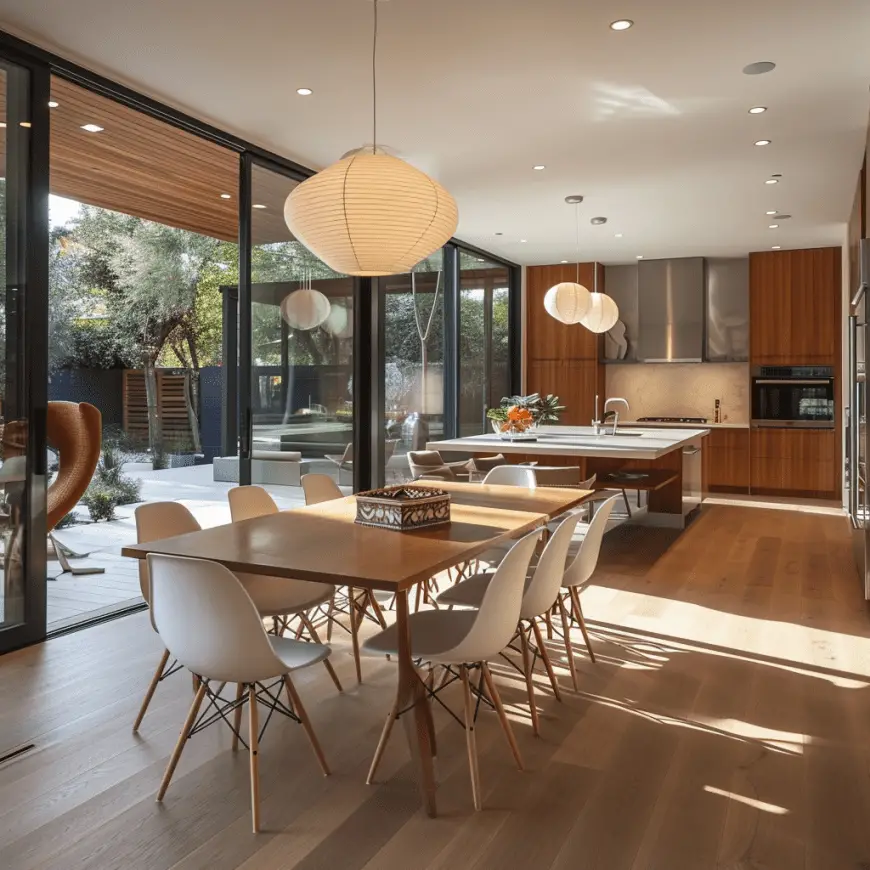
The Historical Context of the Eames Chair
The Eames Lounge Chair* was born out of a desire to create a chair with the warm, receptive look of a well-used first baseman’s mitt. It was a product of experimentation, skill, and a deep understanding of materials.
2. The Barcelona Chair: Mies van der Rohe’s Minimalist Marvel
Designed for the 1929 International Exposition in Barcelona, the Barcelona Chair by Mies van der Rohe and Lilly Reich is an ode to modernism. Its clean lines and luxurious materials like leather and chrome make it a masterpiece of minimalist design.
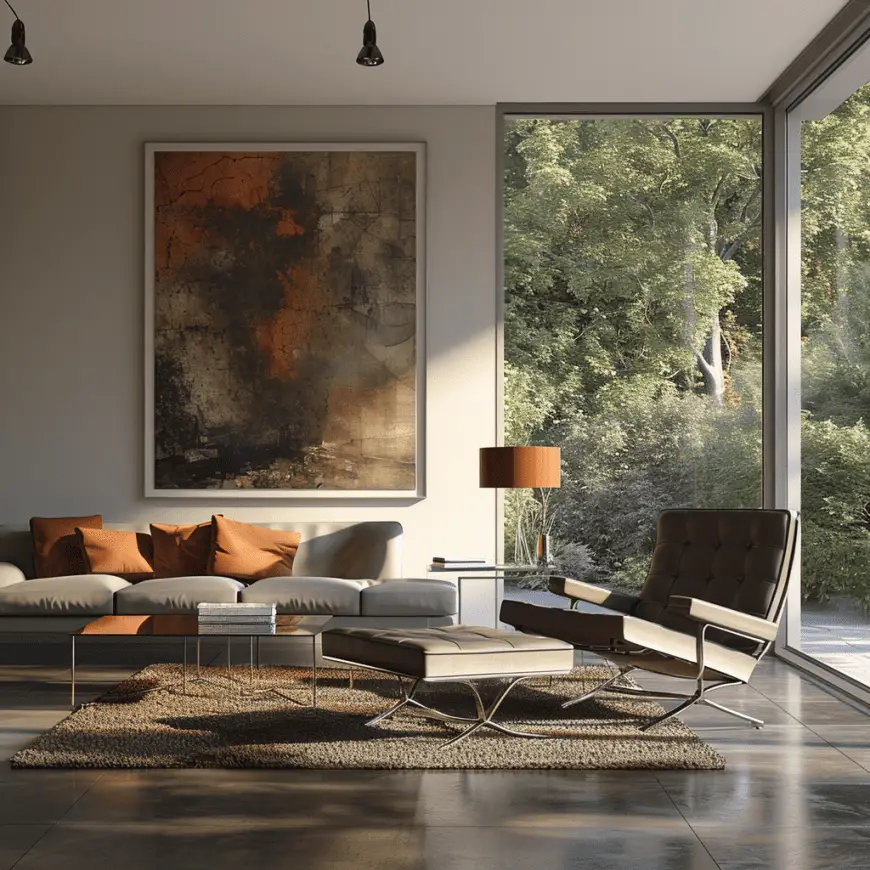
The Barcelona Chair’s Architectural Influence
The design principles of the Barcelona Chair mirror those of van der Rohe’s architectural style: “less is more.” This piece isn’t just furniture; it’s a statement of simplicity and elegance.
3. The Noguchi Coffee Table: A Sculptural Centerpiece
Isamu Noguchi’s coffee table, with its unique and biomorphic form, blurs the lines between sculpture and functional design. This piece is a testament to Noguchi’s skill as a sculptor and designer, merging art with everyday furniture.
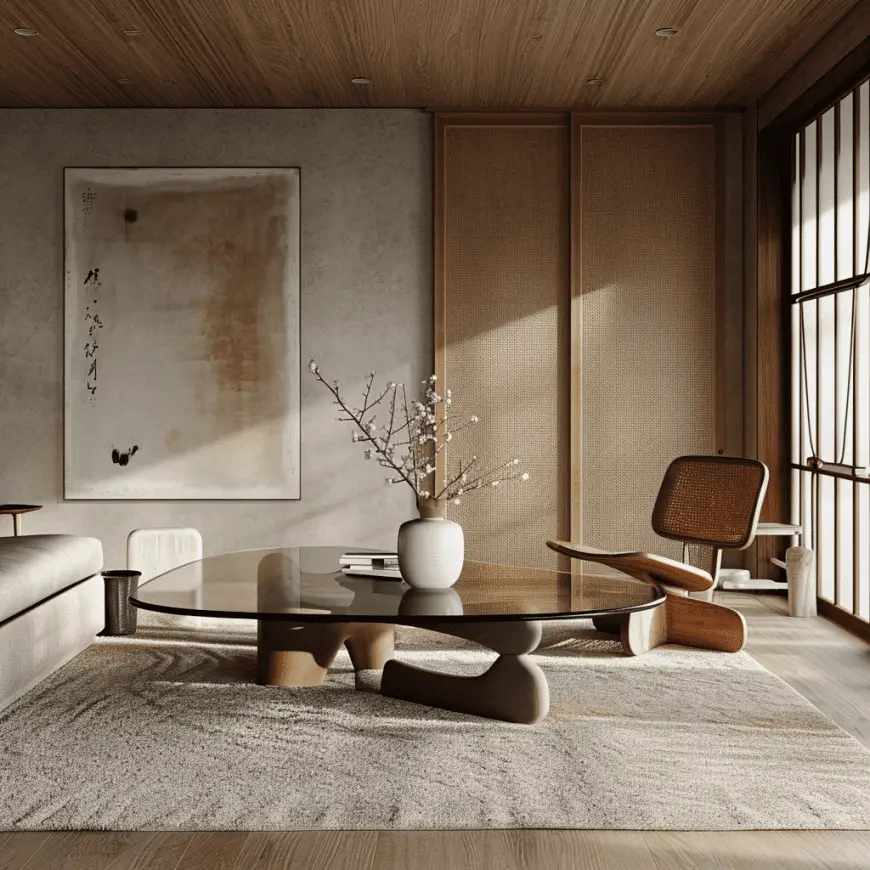
Noguchi’s Artistic Philosophy in Furniture Design
Noguchi believed in creating pieces that were both visually appealing and functional. His coffee table, with its graceful curves and balance, embodies this philosophy.
4. The Tulip Table and Chairs by Eero Saarinen: Redefining Dining Spaces
Eero Saarinen’s Tulip Table and Chairs, with their sleek and futuristic design, were a part of his ambition to create a cleaner, more streamlined furniture design. They represent a break from the traditional four-legged tables and chairs, offering a seamless, flowing form.
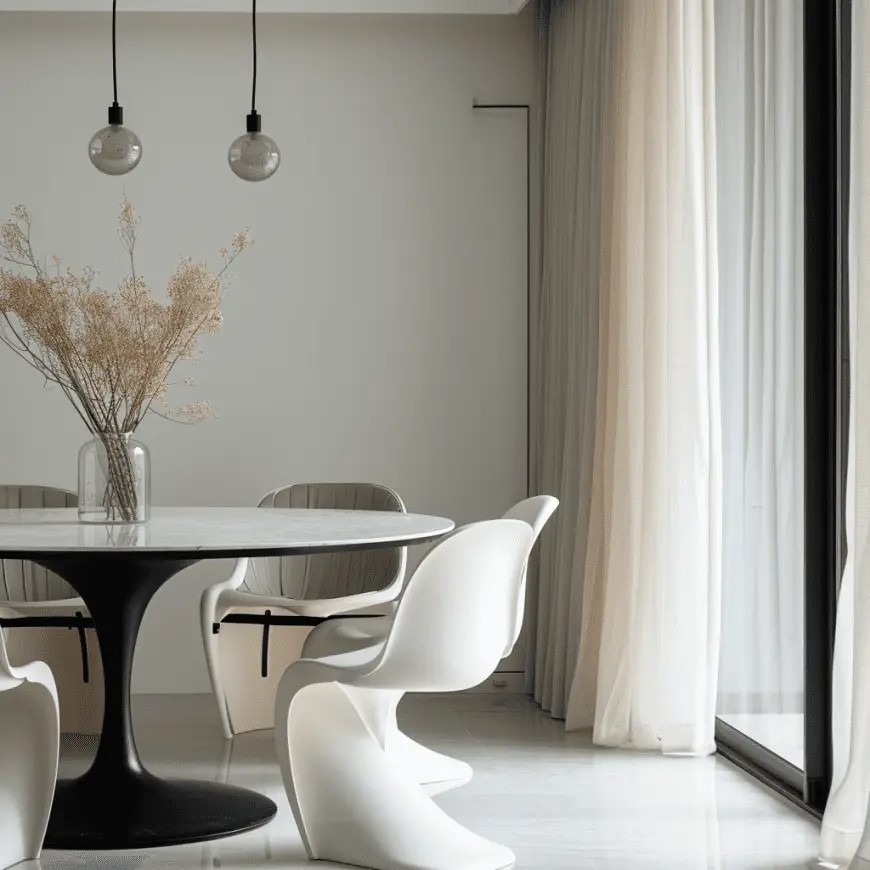
Saarinen’s Vision of the Future in Furniture
Saarinen’s designs were forward-thinking, embodying a vision of a future where form and function could coexist in harmony. His Tulip series is a perfect example of this.
5. The Arco Floor Lamp by Achille and Pier Giacomo Castiglioni: A Marvel of Balance and Design
The Arco Floor Lamp, designed by the Castiglioni brothers, is a marvel of industrial design. Its large arc and marble base are not just visually striking but are a study in balance and form.
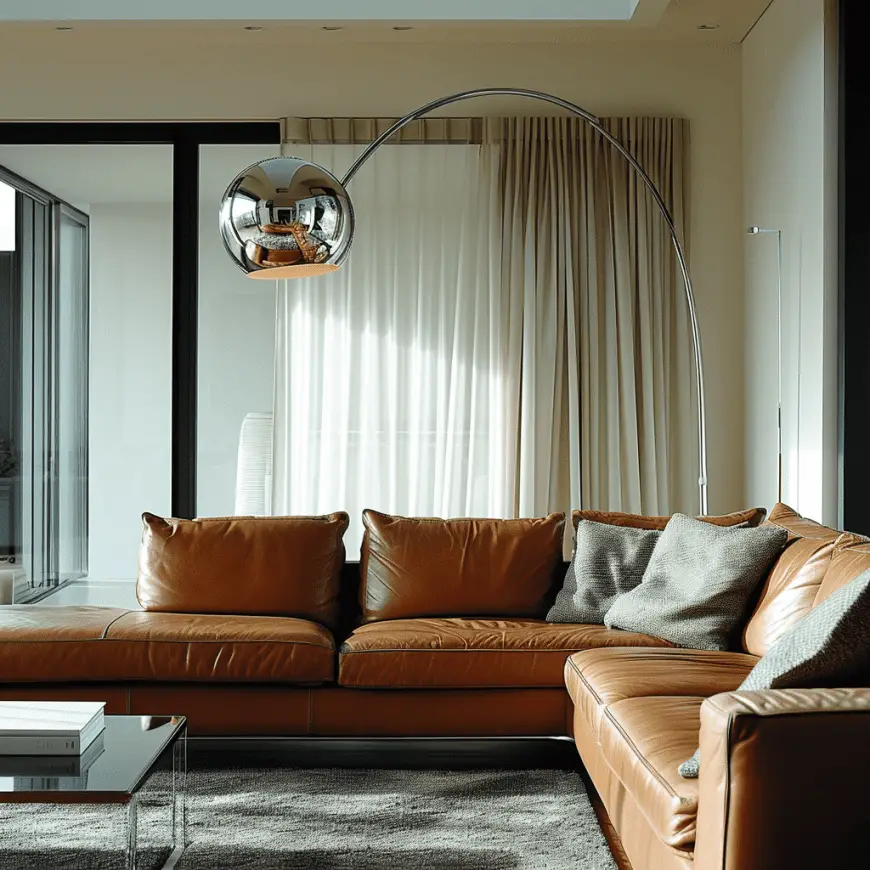
Engineering and Aesthetics in the Arco Lamp Design
The Arco Lamp combines engineering ingenuity with aesthetic beauty. Its design solves a practical problem – how to provide overhead lighting without ceiling suspension – in a stylish way.
6. The Wassily Chair by Marcel Breuer: Industrial Materials Meet Modern Art
Marcel Breuer’s Wassily Chair revolutionized the use of materials in furniture design. By using tubular steel, Breuer brought a new industrial aesthetic to the world of furniture, making it an icon of modern design.
Breuer’s Experimentation with Tubular Steel
Breuer’s use of tubular steel was inspired by his fascination with bicycles. This material allowed for simplicity, durability, and a unique aesthetic.
7. The Egg Chair by Arne Jacobsen: A Cocoon of Privacy
Designed for the Royal Hotel in Copenhagen, the Egg Chair by Arne Jacobsen is a masterpiece of privacy and comfort. Its unique shape creates a sense of enclosure and coziness, making it an iconic piece in the realm of modern furniture.
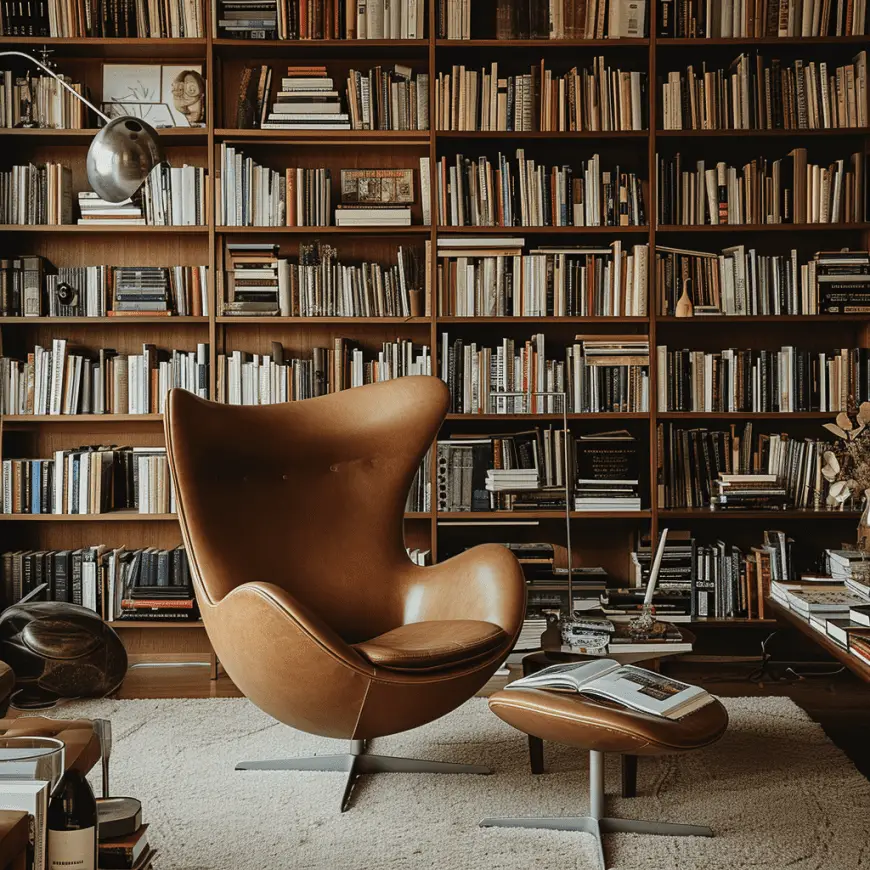
Jacobsen’s Integration of Form and Function
Jacobsen’s Egg Chair is not just about looks; it’s about creating a personal space within a public environment. This blend of form and function is at the heart of its design.
8. The Chesterfield Sofa: A Timeless Symbol of Sophistication
The Chesterfield Sofa, with its rich history and classic design, has become a symbol of elegance and sophistication in interior design. Its deep-buttoned upholstery and high arms are instantly recognizable.
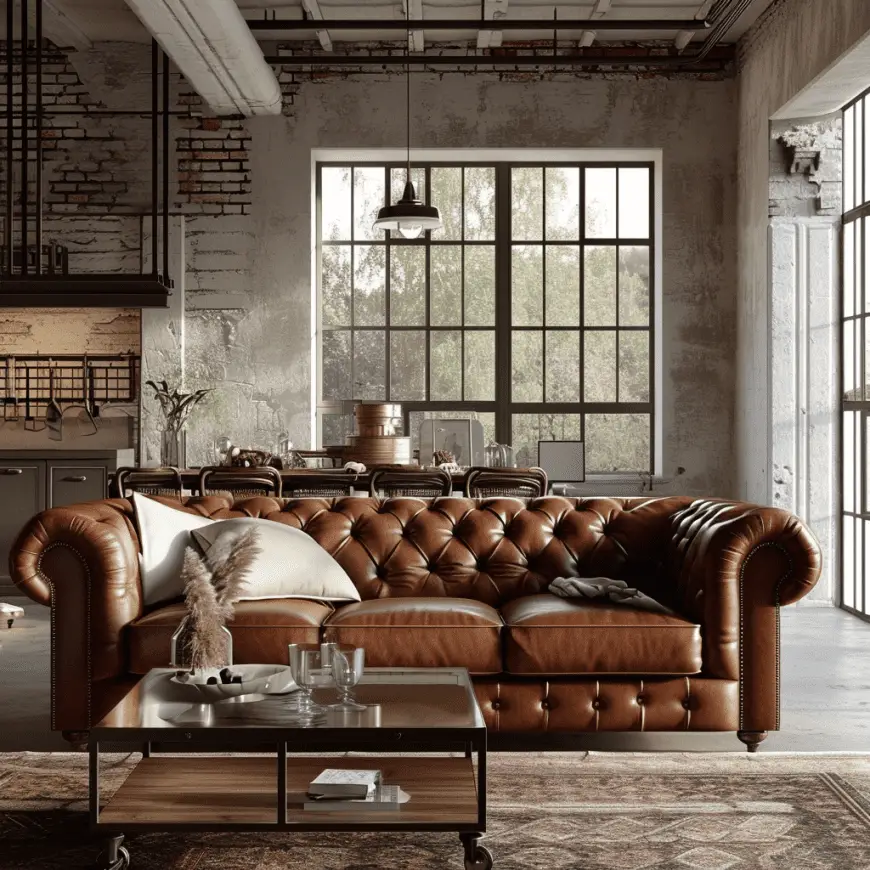
The Chesterfield’s Journey Through History
Originally designed in the 18th century, the Chesterfield Sofa has graced the homes of royalty and the offices of the elite, maintaining its status as a classic piece of furniture design.
9. The LC4 Chaise Longue by Le Corbusier: An Ode to Relaxation
Le Corbusier’s LC4 Chaise Longue, also known as the “relaxing machine,” is a perfect balance of form and function. Its ergonomic design and minimalist aesthetic make it a staple in modern furniture collections.
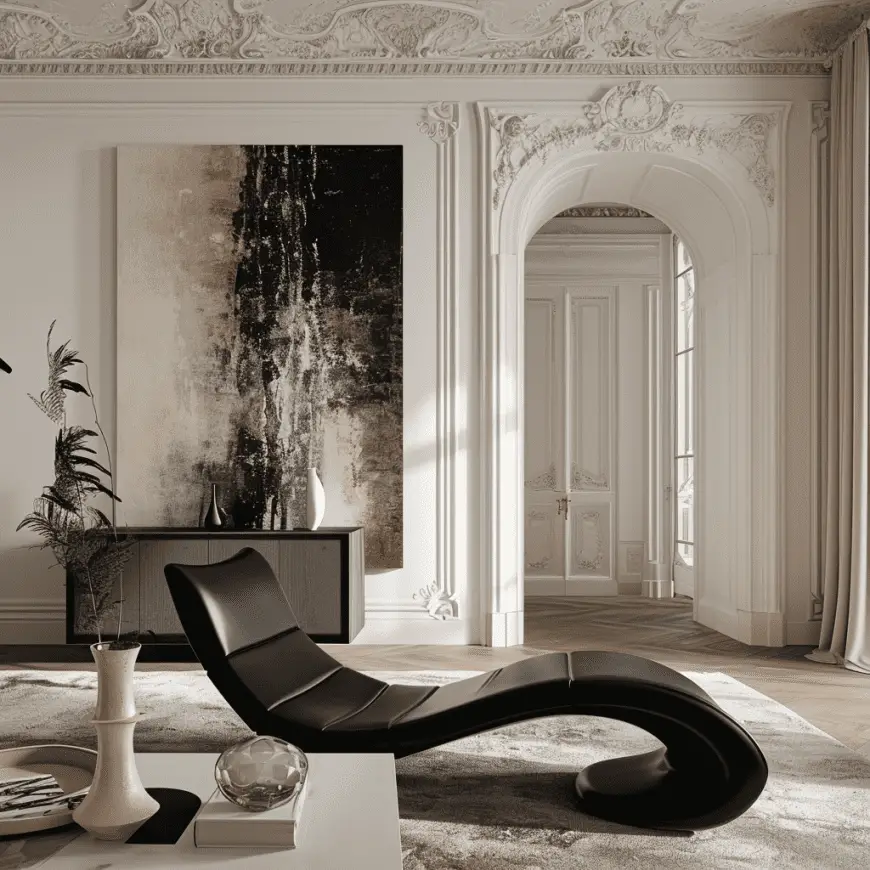
Le Corbusier’s Philosophy of Functionalism
Le Corbusier’s designs were based on the belief that furniture should be extensions of our bodies. The LC4 Chaise Longue embodies this philosophy, offering comfort and style.
10. The Ghost Chair by Philippe Starck: A Modern Twist on Classic Baroque
Philippe Starck’s Ghost Chair is a contemporary take on the classic Baroque style. Made of transparent polycarbonate, the Ghost Chair combines tradition with innovation, making it a striking piece of modern design.
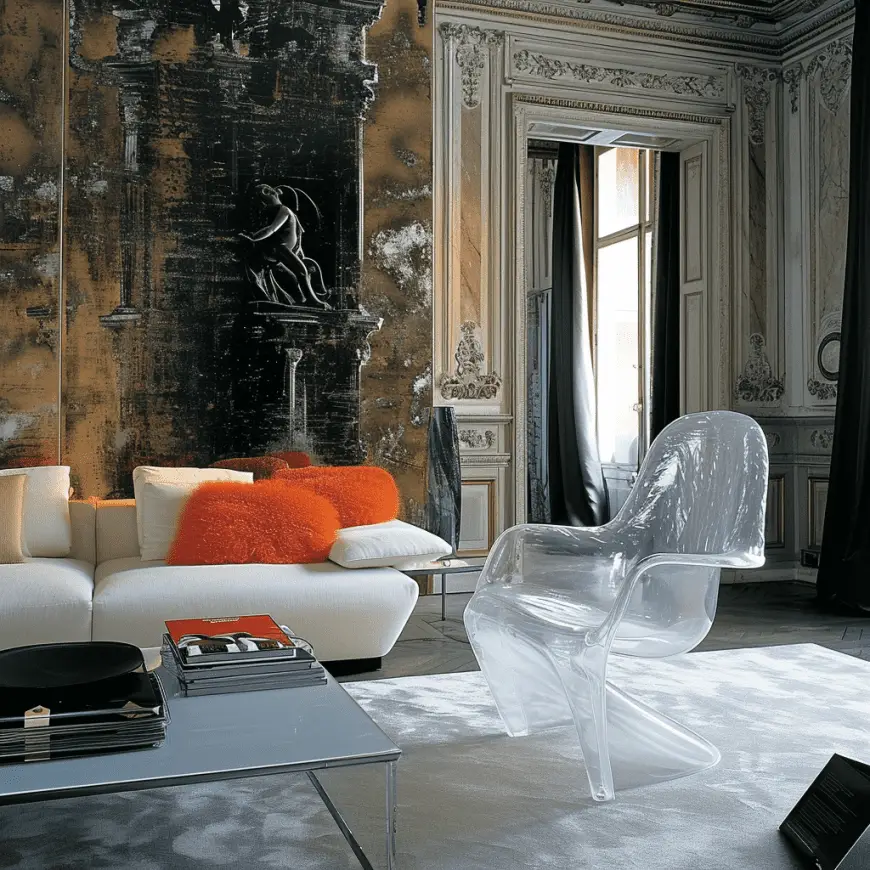
Starck’s Blend of Tradition and Modernity
The Ghost Chair is a testament to Starck’s ability to reimagine traditional designs in a modern context. Its transparency and form make it a unique addition to any space.
Conclusion
Each of these iconic design furniture pieces tells a story. They are not just objects to be used but are embodiments of the creativity, innovation, and vision of their designers. They have influenced generations and continue to be relevant in the ever-evolving world of design. These pieces are not just a part of our homes; they are a part of our cultural heritage.

